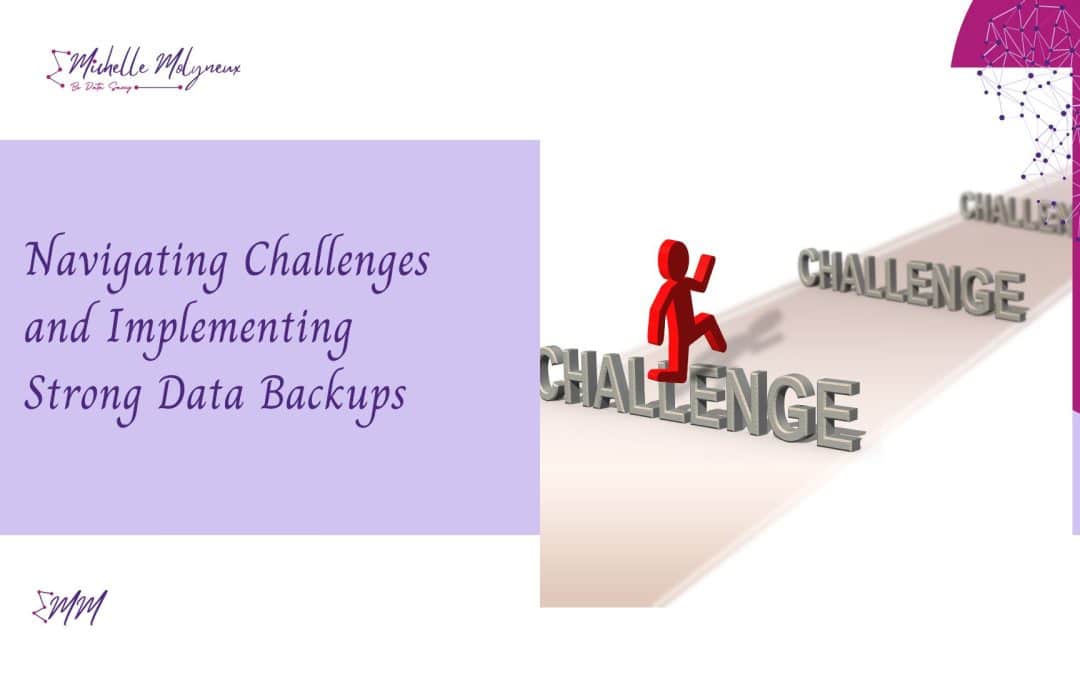In the rapidly evolving digital landscape, businesses face an array of challenges, particularly when it comes to data security. As the sophistication of digital threats increases, so does the importance of implementing strong data backups and maintaining robust security measures. Building on last week’s article, Building a Secure Data Environment, we will delve into the challenges of navigating digital threats, crafting a resilient backup plan, and selecting the right backup solutions and tools.
The digital sphere is no stranger to threats. Over the years, we’ve seen an evolution in the types of cyber threats businesses face, including ransomware, phishing, and internal threats. Ransomware, in particular, has become increasingly prevalent, often leading to significant business disruption and financial loss. The rise in phishing attacks also poses a significant risk, with cyber criminals continuously refining their tactics to trick unsuspecting users into revealing sensitive information. Additionally, internal threats, often overlooked, can be just as damaging, especially when proper access controls are not in place.
Crafting a Resilient Backup Plan
To protect against these threats, businesses must employ strategic security measures, such as
- regular security assessments
- incident response planning
- backup strategy
Security assessments help identify vulnerabilities and rectify them before they can be exploited. On the other hand, incident response planning ensures that a business is prepared to respond quickly and effectively when a breach occurs.
Another crucial aspect of data protection is creating a comprehensive backup strategy. A resilient backup plan should consider the 3-2-1 backup rule (not Dusty bin), which involves maintaining three copies of data stored on two different media types, with one copy kept off-site. Moreover, encrypting backup data is critical to safeguarding it from unauthorized access. Businesses must also carefully consider their backup storage locations, ensuring they are secure and easily accessible for disaster recovery.
Disaster recovery planning goes hand in hand with data backup. It involves establishing procedures to restore normal operations following a data loss event. Having an emergency response in place is crucial for effective disaster recovery. Even on your own or as a team, everyone should be trained to handle various data loss scenarios and be equipped with the necessary tools and knowledge to restore operations swiftly.
Backup Solutions and Tools
Finally, choosing the right backup solution is critical. Various backup solutions are tailored for small businesses, including cloud-based services, software options, and hardware devices. When selecting a backup tool, businesses should consider factors such as scalability, security features, and cost-effectiveness.
Scalability is crucial as it ensures that the chosen solution can grow with the business. Security features are equally important, protecting backup data from various threats. Lastly, cost-effectiveness ensures that the solution provides value for money.
In conclusion, navigating digital threats, implementing a robust backup plan, and selecting the right backup tools are key to maintaining data security. By understanding the evolving landscape of digital threats and developing a comprehensive backup and disaster recovery plan, businesses can better protect their data and ensure business continuity.
Book a clarity call with us today to better understand how these strategies can be tailored to your business needs. Our team of experts is ready to help you navigate the complexities of data security and backup solutions. Together we can ensure your business is prepared for any digital threat.

